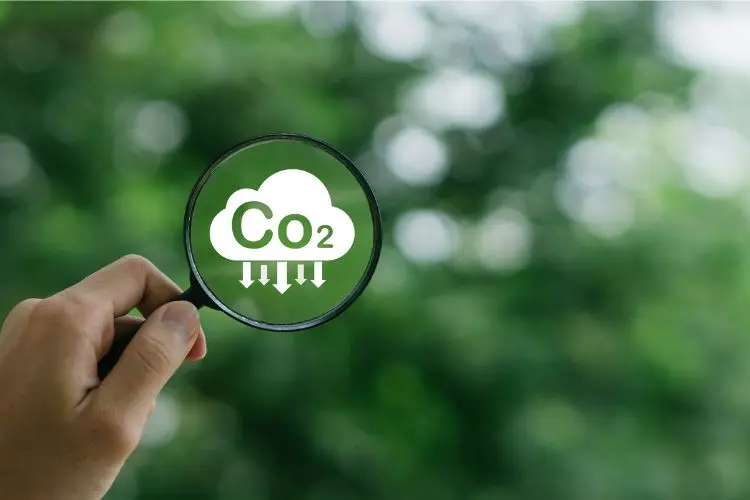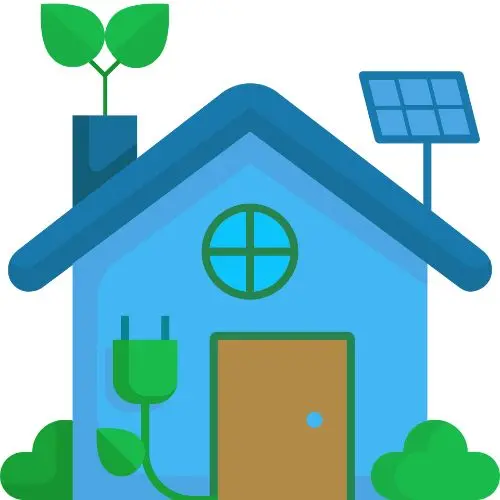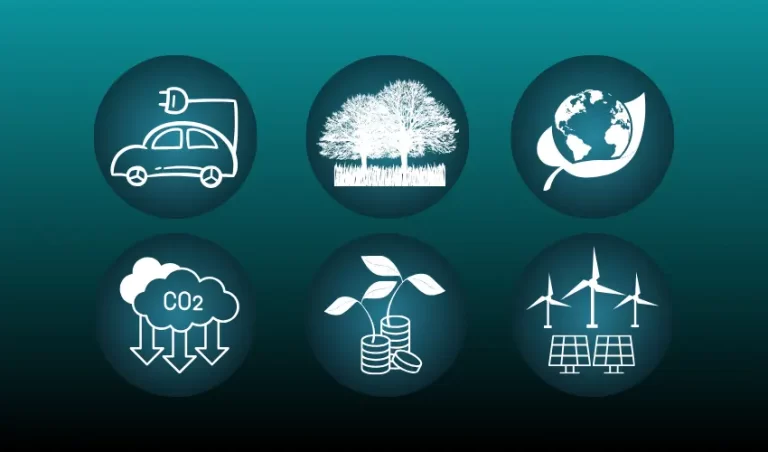Sustainability Graduate Career Options: 10 In Focus
As the world increasingly prioritises sustainable development and climate action, several career paths have emerged for graduates passionate about sustainability!
Here’s our 10 top sustainability graduate career paths to consider, along with guidance on professional developments to target and potential salaries to expect.
We’ve focused on the UK and USA, but these paths also apply to many regions around the world, all working towards a more sustainable future.
1. For A Variety of Challenges: Environmental Consultancy

Role Overview:
Environmental consultants provide expert advice to organisations on managing environmental issues, complying with regulations, and implementing sustainable practices.
This is a great career path to consider for those looking to apply the broad range of sustainability knowledge they have developed. You will consult on various projects and with different organisations, providing you a variety of challenges and scenarios to tackle.
Additional Professional Development to Consider:
Certifications: Obtain certifications such as Certified Environmental Professional (CEP) or Chartered Environmentalist (CEnv) to enhance credibility.
Specialised Training: Focus on practical applications areas, such as environmental impact assessment, waste management, or pollution control.
Advanced Degrees: Consider pursuing a Master’s degree in Environmental Science, Environmental Management, or related fields. Aim for those with a practical focus, applying advanced knowledge to real world settings.
Potential Salaries:
2. For Impact In Business: Sustainability Management

Role Overview:
Sustainability managers develop and implement strategies to promote sustainability within organizations, focusing on areas such as energy efficiency, waste reduction, and corporate social responsibility.
This is one of the most popular career paths for sustainability graduate to pursue, but also one that is increasing in demand across a wide range of industries and organisations.
Professional Development:
Project Management: Gain skills in project management to handle delivering sustainability initiatives effectively.
Certifications: Training for delivery of standards such as LEED (Leadership in Energy and Environmental Design) or ISO 14001 (Environmental Management Systems) can be advantageous.
Networking: Join professional networks such as the International Society of Sustainability Professionals (ISSP), The Institute of Environmental Management (IEMA), or The Institution of Environmental Sciences (IES).
Potential Salaries:
3. To Reduce Fossil Fuels: Renewable Energy Engineering

Role Overview:
Renewable energy engineers design, develop, and implement systems that generate energy from renewable sources such as wind, solar, and hydroelectric power.
This is a rapidly growing industry, advancing every year as the drive to reduce fossil fuel dependency progresses.
Professional Development:
Engineering Licenses: Obtain relevant engineering licenses, such as Professional Engineer (PE) in the USA or Chartered Engineer (CEng) in the UK.
Technical Skills: Undertake training to enhance your skills in areas like photovoltaics, wind turbine technology, and energy storage systems.
Advanced Degrees: Consider a Master’s or Ph.D. in Renewable Energy Engineering or a related field.
Potential Salaries:
4. To Use Your Data Skills: Sustainability Analytics

Role Overview:
Sustainability analysts collect and analyse data related to sustainability initiatives, helping organizations to assess the effectiveness of their programs and identify areas for improvement.
This is a great role for any sustainability graduate to target that is seeking out a career where they can get into the numbers!
Professional Development:
Data Analysis Tools: Proficiency in software tools such as Excel, GIS and Python for data analysis.
Certifications: Consider obtain certifications for implementation of the Greenhouse Gas Protocol and SASB (Sustainability Accounting Standards Board) to improve your carbon accounting capabilities.
Advanced Degrees: A Master’s degree in Data Analytics, Environmental Economics, or a similar field can be beneficial.
Potential Salaries:
5. For Impact Beyond The Environment: CSR & ESG Specialists

Role Overview:
Corporate Social Responsibility (CSR) and Environmental Social Governance (ESG) specialists develop programmes to ensure an organisation’s operations are both socially responsible and environmentally sustainable.
Professional Development:
Certifications: Consider certifications like the CSR-P (Corporate Social Responsibility Practitioner) to evidence and improve your capabilities for application of CSR principles.
Public Relations: Develop skills in public relations and stakeholder engagement.
Advanced Degrees: A Master’s degree in Business Administration (MBA) with a focus on sustainability or CSR can be advantageous.
Potential Salaries:
6. Supporting Nature: Sustainable Agriculture Specialist

Role Overview:
Sustainable agriculture specialists work to promote farming practices that are environmentally friendly, economically viable, and socially responsible.
This is a growing sustainability career path for graduates to pursue, and one that will no doubt grow rapidly as the value of biodiversity and healthy soils grows in recognition.
Professional Development:
Agriculture Certifications: Obtain certifications like Certified Crop Advisor (CCA) or Permaculture Design Certificate (PDC).
Field Experience: Gain practical experience through internships or work on sustainable farms.
Advanced Degrees: A Master’s in Sustainable Agriculture, Agroecology, or a related field can be beneficial.
Potential Salaries:
7. Developing Climate Resilience: Urban Planning

Role Overview:
Urban planners develop plans and programmes for land use in urban areas.
These plans focus on sustainable development, transportation, and incorporating green spaces or urban rewilding.
Ultimately this approach makes for a better environment both for us humans and natural biodiversity, with lower air pollution, more access to nature and a greater variety of habitats.
Professional Development:
Planning Certifications: Obtain certifications such as the Royal Town Planning Institute (RTPI) membership in the UK or American Institute of Certified Planners (AICP) in the USA.
GIS Skills: Develop skills in Geographic Information Systems (GIS) for spatial analysis and planning.
Advanced Degrees: Consider a Master’s degree in Urban Planning, City Planning, or a related field.
Potential Salaries:
8. Supporting Future Action: Education & Teaching

Role Overview:
Environmental educators develop and deliver programs to educate the public about environmental issues and sustainability practices.
These roles can be both through organisations promoting sustainable development and supporting businesses to train staff, as well as options directly within the education sector at schools, colleges and universities.
Professional Development:
Teaching Certifications: Obtain teaching certifications or credentials relevant to your region.
Public Speaking: Enhance skills in public speaking and communication.
Advanced Degrees: A Master’s in Environmental Education, Education, or a related field can be beneficial.
Potential Salaries:
9. To Protect Biodiversity: Ecologist

Role Overview:
Ecologists study ecosystems and the relationships between organisms and their environments, working to conserve natural habitats and biodiversity.
The demand for ecologists continues to grow year on year, driven by an increased recognition of the value that biodiversity can provide.
Professional Development:
Field Experience: Gain hands-on experience through fieldwork, internships, or research projects.
Professional Memberships: Join professional organisations such as the British Ecological Society (BES) or the Ecological Society of America (ESA).
Advanced Degrees: Consider a Master’s or Ph.D. in Ecology, Conservation Biology, or a related field.
Potential Salaries:
10. Providing Sustainable Buildings: Green Architecture

Role Overview:
Green building architects design buildings that are energy-efficient, sustainable, and environmentally friendly.
To follow this career path as a sustainability graduate you will need to be passionate about design and be willing to advance your knowledge into the practical application of engineering and architectural skills.
Professional Development:
Architectural Licenses: Obtain relevant licenses such as the Architect Registration Board (ARB) in the UK or the National Council of Architectural Registration Boards (NCARB) in the USA.
LEED Certification: Achieve LEED accreditation to demonstrate expertise in green building practices.
Advanced Degrees: A Master’s degree in Architecture with a focus on sustainable design can be beneficial.
Potential Salaries:
A Bright Future For Sustainability Graduates

A career in sustainability offers diverse opportunities for recent graduates to make a meaningful impact while building a rewarding professional life.
Whether you aim to become an environmental consultant, sustainability manager, or ecologist, each path requires continuous learning and professional development. By obtaining relevant certifications, gaining practical experience, and pursuing advanced degrees, you can enhance your expertise and increase your earning potential.
As businesses and governments continue to prioritise sustainable practices, the future looks promising for those committed to making a difference.
To help you consider your future choices, we’ve also put together the following resources:
Key Tips to Secure Your First Graduate Role
Sustainability Career Trends in Focus
Renewable Energy Careers: Trends & Predictions
Sustainability Trends 2025: Key Predictions to Watch
Plus plenty of other related insights that you’ll find below!







